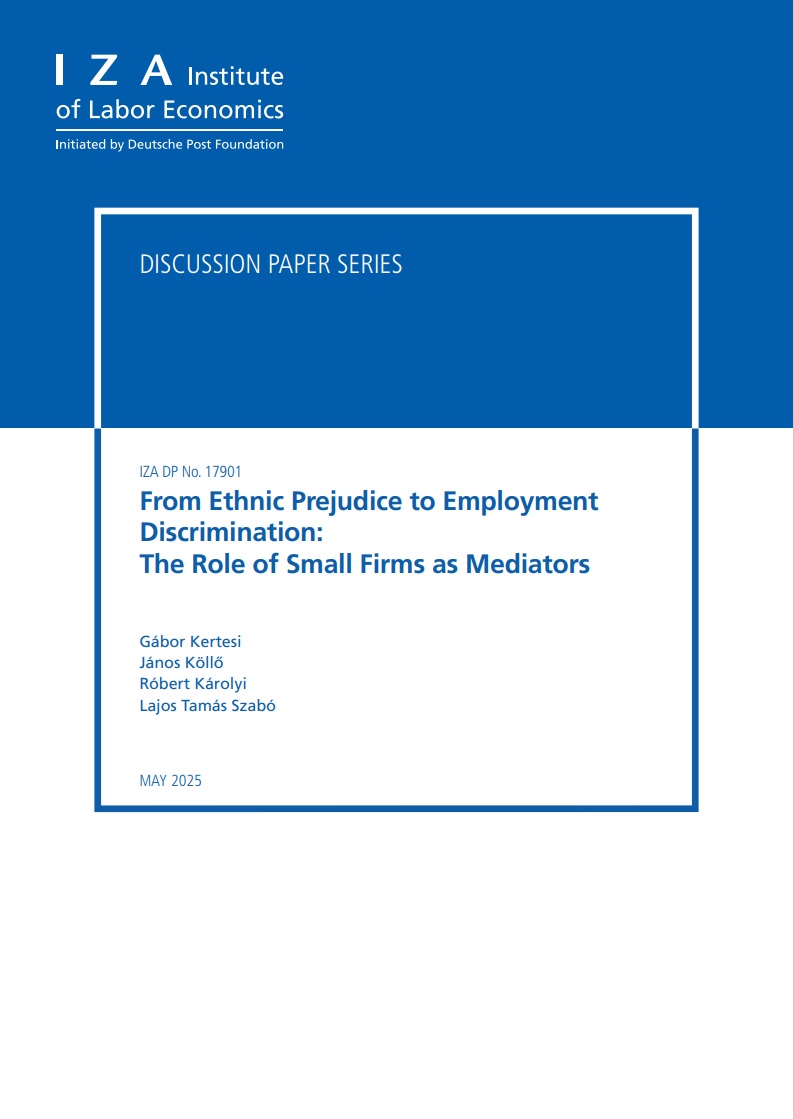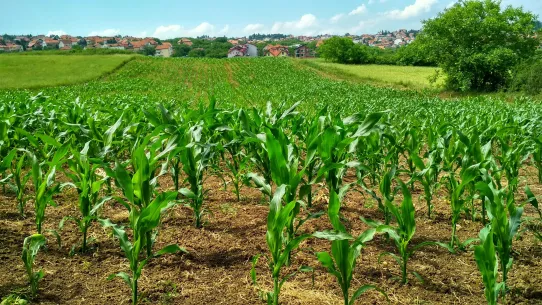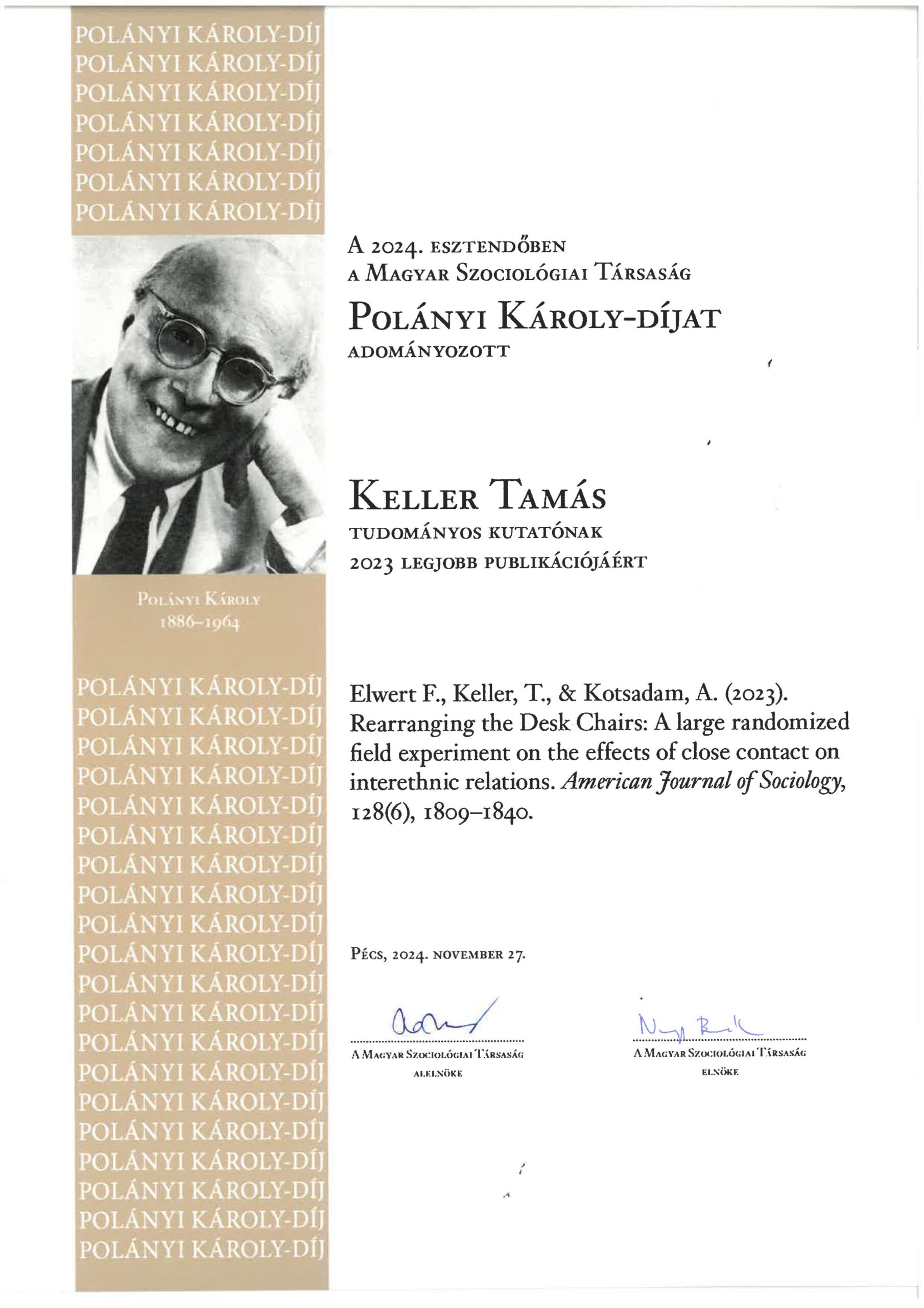Gender equality and green entrepreneurship in farms

Imre Fertő – Štefan Bojnec Sustainable Development – First published: 1 January 2025 Abstract Gender dynamics in agricultural sustainability, particularly within the framework of Agri-Environmental-Climate-Schemes (AECS), play a critical role in advancing green entrepreneurship. This study explores gender-based differences in the adoption and intensity of AECS practices among Hungarian farms, emphasising the implications for gender equality in sustainable […]
Does monetary policy stabilise food inflation in Hungary?

Imre Fertő – Tibor Bareith Agris on-line Papers in Economics and Informatics – Vol. 16. No. 4. 2024. p. 69-77 Abstract This study examines the relationship between monetary policy and food price inflation in Hungary from January 2007 to December 2023 using the Nonlinear Autoregressive Distributed Lag (NARDL) model. Our analysis reveals that although the […]
Shortcomings of social innovation definitions and a proposed new definition
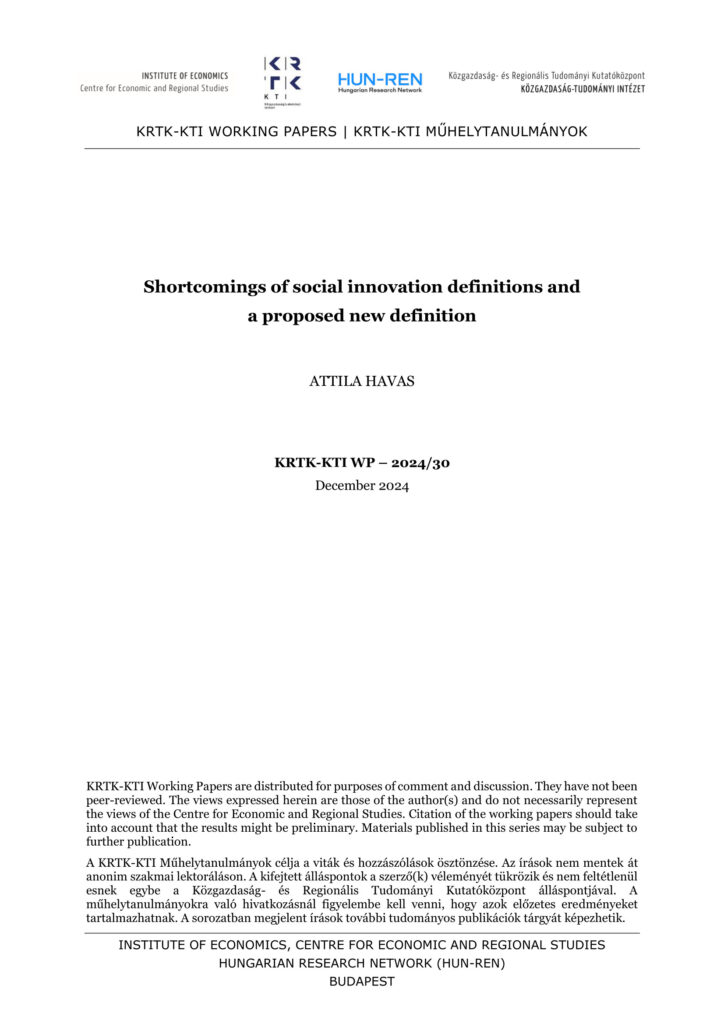
Social innovation (SI) research still struggles with problems of definition (Edwards-Schachter and Wallace 2017) and lacks a shared analytical framework and measurement methods. This lack of coherence is reflected in two bold, diametrically opposing views on SI research. „SI is an eclectic area, since differences still prevail also within the same research communities, revealing some […]
The Effect of Goat Grazing on the Biodiversity of Pannonian Dry Grassland
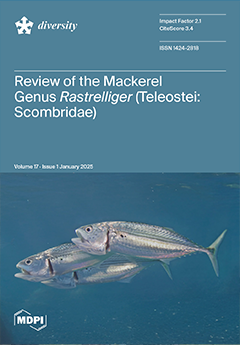
Karoly Penksza – Ferenc Pajor – Andrea Kevi – Zsombor Wagenhoffer – Laszló Sipos – Eszter Salata-Falusi – Peter Penksza – Peter Poti – Jozsef Berke – Denes Salata – Marta Bajnok – Szilard Szentes Diversity (BASEL) Vol. 17. No. 1. Paper: 13. (2025) Abstract In this study, we analyzed the phytosociological data from four […]
The role of capital income in the Hungarian income distribution from 2007 to 2021
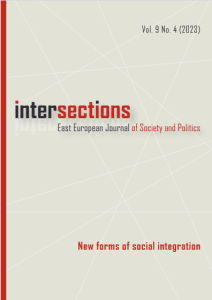
Judit Krekó – Csaba G. Tóth Intersections : East European Journal of Society and Politics, Vol. 10. No. 3. 2024. p. 199-200. Abstract Capital income represents a significant and growing share of total income at the aggregate level in most countries. However, the link between capital income and overall income inequality is not clear, as it […]
Volatile Profile of Bee Pollens: Optimization of Sampling Conditions for Aroma Analysis, Identification of Potential Floral Markers, and Establishment of the Flavor Wheel

Mariann Csóka – Rita Végh – László Sipos Food Science and Nutrition, Vol. 13. No. 1. Paper: e4707 (2025) Abstract The volatile profile of bee pollen samples from Central and Eastern Europe was investigated by headspace solid phase microextraction (HS-SPME) combined with gas chromatography–mass spectrometry-olfactometry (GC–MS-O). Sampling conditions were optimized for the extraction of volatiles. Pollen odorants […]
How sticky is the per capita income?
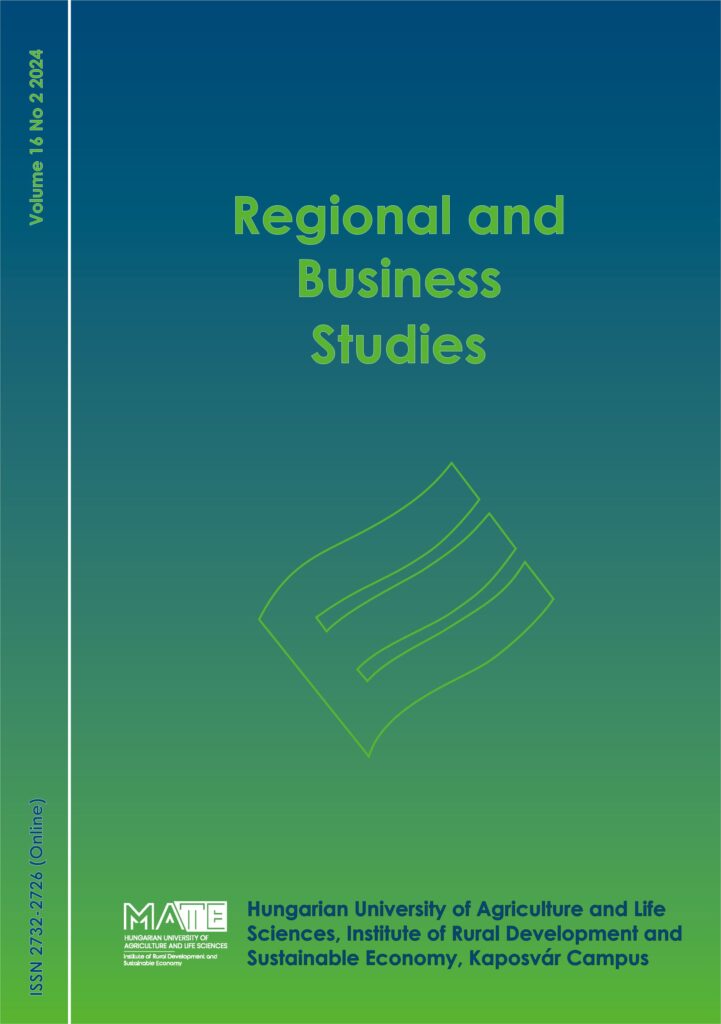
Adrián Csizmadia – Tibor Bareith Regional and Business Studies, Vol. 16. No. 2. 2024. p. 5-19. Abstract In our settlement-level study using the Markov chain method and dynamic regression panel models, we found that in the period 2011-2021, income in the previous year strongly affects income status, i.e., income shows high persistence. Despite the steady […]
Comparative analysis of the CE4 countries’ economic performance
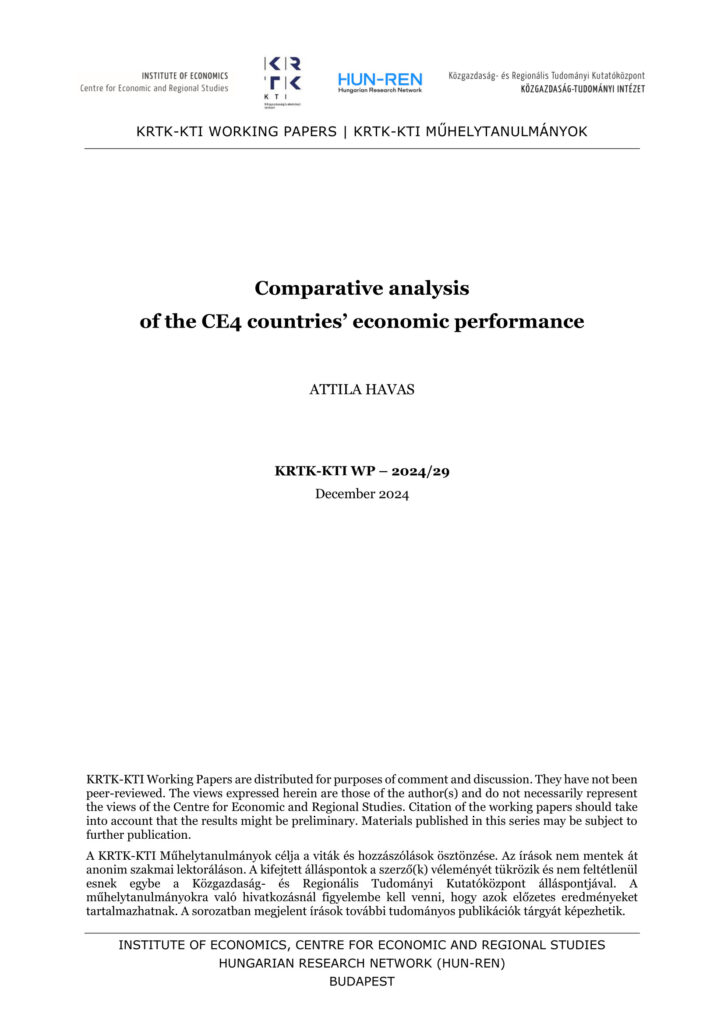
This report compares the economic performance of four Central European countries, namely Czechia, Hungary, Poland, and Slovakia (henceforth: CE4 countries). Many authors emphasise the similarities between the V4 countries – sometimes even the former planned economies of CEE –, i.e., the former ‘bloc approach’ is still dominant. However, key economic indicators – GDP, productivity, unemployment, […]
Firm Quality and Health Maintenance
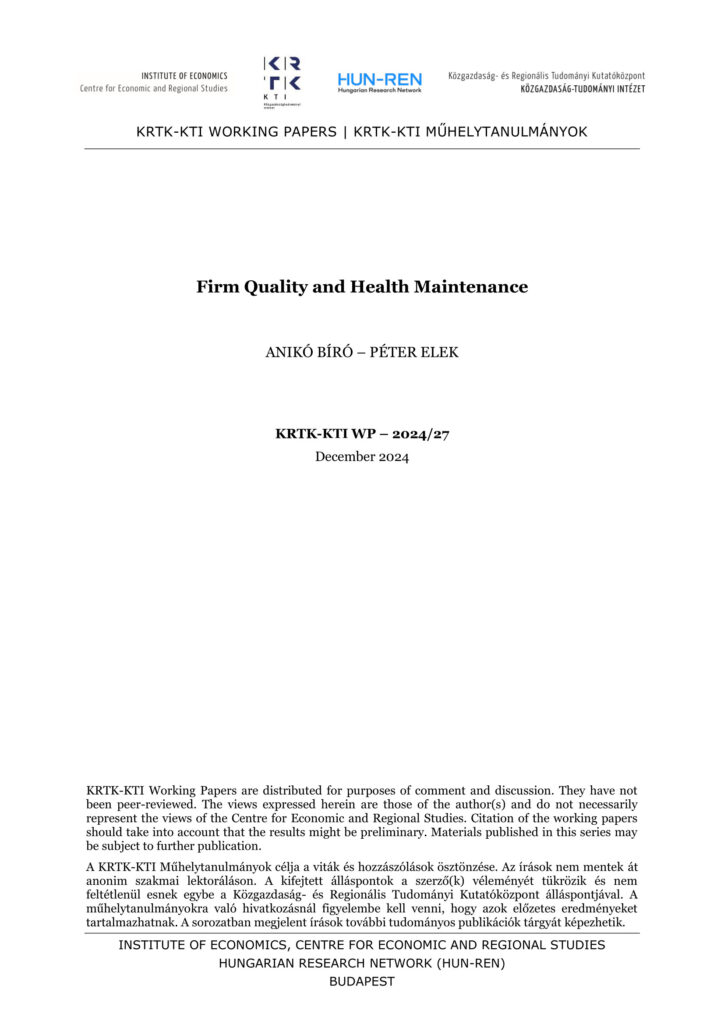
We estimate the impact of firm quality — primarily measured by firm productivity — on the health maintenance of employees. Using linked employer-employee administrative panel data from Hungary, we analyze the dynamics of healthcare use before and after moving to a new firm. We show that moving to a more productive firm leads to higher […]
Tax Evasion and the Contribution-Benefit Link: The Case of Maternity Benefits
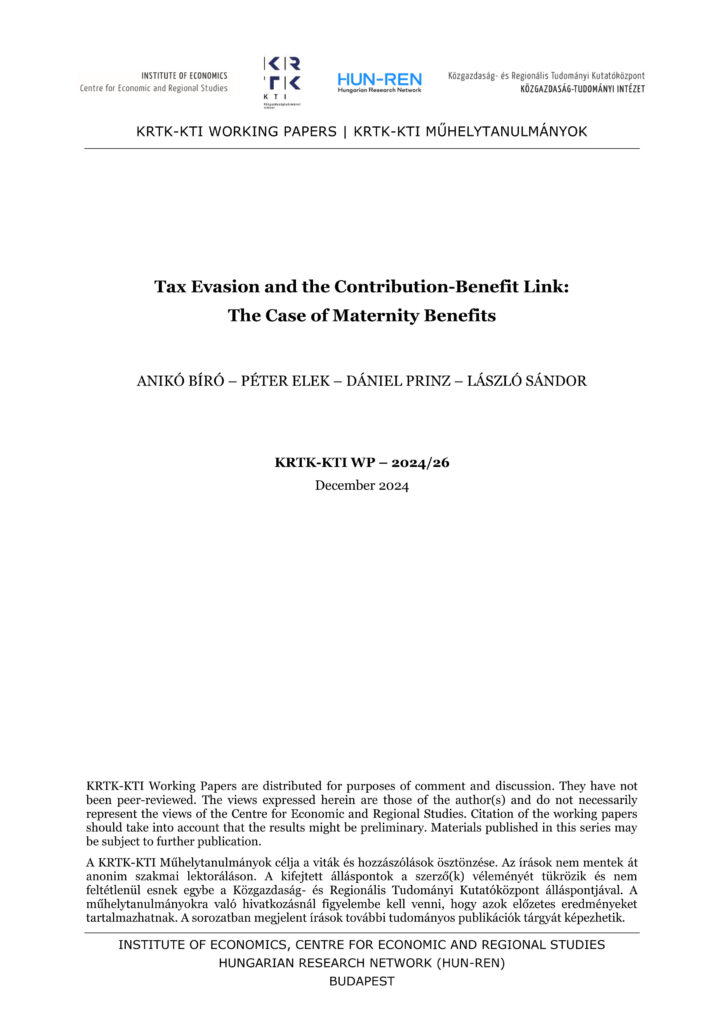
This paper studies tax evasion and the contribution-benefit link in the context of maternity benefits in Hungary. Earnings and employment patterns suggest pre-pregnancy underreporting, followed by formalization of some earnings and employment during pregnancy to increase benefits. Reported earnings in small, domestic, and less productive firms bunch at the minimum wage before pregnancy and the […]
Social innovations in authoritarian polities: Two contrasting cases in Hungary
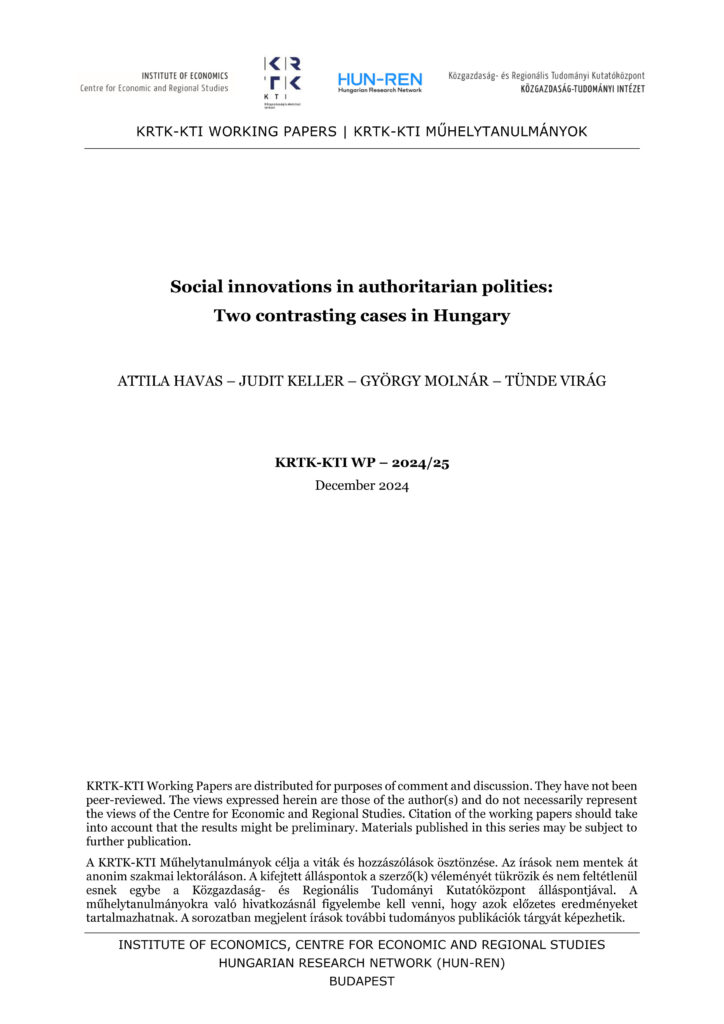
Rising inequalities and deprivation have been important drivers for social innovation (SI). We understand SIs as novel initiatives or novel combinations of known solutions, aimed at tackling a societal problem or creating new societal opportunities, applied in practice. SIs success requires enabling institutional framework that facilitate collaborative agency for its design and implementation. However, authoritarian […]
Balázs Lengyel – Gergő Tóth – Nicholas A. Christakis and Anikó Bíró’s article in the Science Advances

Antidepressant use in spatial social networks Balázs Lengyel – Gergő Tóth – Nicholas A. Christakis – Anikó Bíró Science Advances Vol. 10. No. 49. (6 Dec 2024) Abstract Social networks may help individuals maintain their mental health. Most empirical work based on small-scale surveys finds that cohesive social networks are critical for mental well-being, while diverse networks are considered less […]


